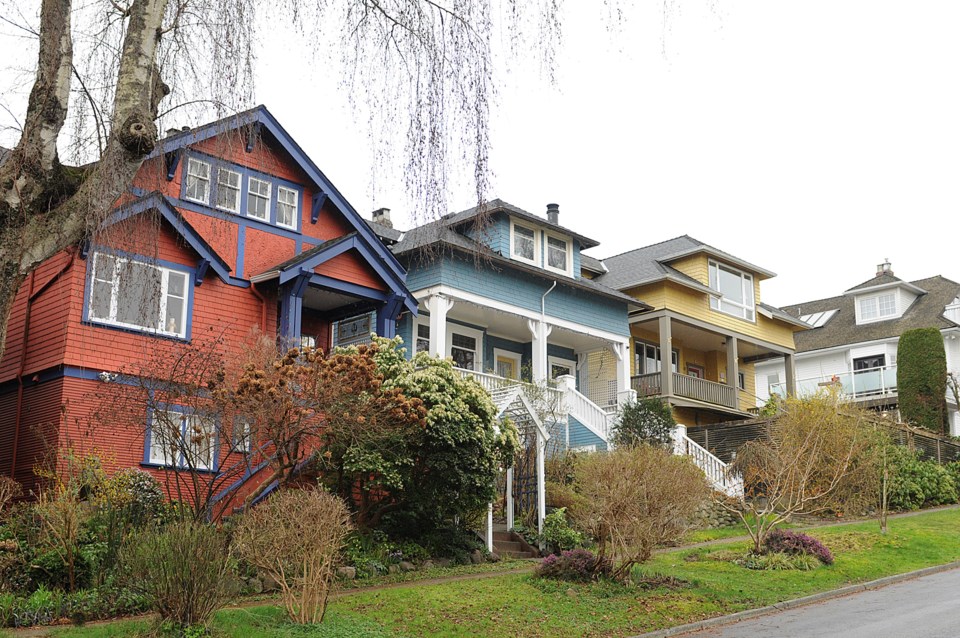On the affordable housing file that has proven so all-consuming: It is amazing how our views have changed.
Not so long ago, when it was suggested that the Vancouver real estate market was being over-heated by Chinese nationals bringing in (smuggling unreported) wads of cash and buying up significant chunks of single-family houses, we were cautioned by Mayor Gregor Robertson, among others, that speculation could be construed as “racist.” Now it is accepted as a simple, verifiable fact.
When there was speculation that the reason the province was allowing this to happen is because they had their nose so far into the trough they had no interest in slowing this down, we heard the premier go on about not wanting interfere in the market, not wanting to degrade the equity homeowners had accumulated to support themselves in retirement.
Besides, the province saw its long-term economic salvation in LNG.
Now, practically on the eve of a provincial election, LNG prospects have faded. Last week, the province disclosed a windfall budget surplus from — you guessed it — real estate sales. With the Globe and Mail’s Justine Hunter doing the math, we learned that revenues from land transfer tax pouring into the provincial treasury “eclipsed resources as B.C’s top source of revenue.” The chief economist of the B.C. Business Council noted that “the residential real estate complex is generating up to 35 to 40 per cent of all economic growth in the province.”
Put the brakes on that at your economic peril. But then there was the greater peril of electoral disaster.
Amidst a growing chorus of complaints about crooked or at least unscrupulous real estate agents benefiting from a decision by the Liberals to allow them to be self–regulating more than a decade ago, Christy Clark was forced to move. They would be regulated once again.
Presumably, a provincial regulatory agency that had been starved by the Liberals would be adequately funded.
Although by then much of the damage had been done. And for many of us housing affordability was no longer a possibility.
The announcement this week that the government would put $500 million towards building affordable housing (while this year’s revenues from land transfer taxes were $2.2 billion) was of course praised by not-for-profit housing advocates. But, and there was a “but,” it is, they said, what should be happening every year to have any significant impact, rather than this one-shot pre-election goody that would be spread over three years.
And by the way, as vague as the announced plan was, you can bet a significant chunk of that dough will provide incentives to the Liberals’ favourite donors, the development industry.
In the face of the fact, according to planner Andy Yan, who makes a habit of tracking this stuff, that there are about 17,000 housing starts in Metro Vancouver every year, a program to provide 2,900 units over three years and across the whole of the province is not much more than a drop in the bucket.
Finally, look at the plight of seniors — seniors who own and live in their own condominiums. The Globe’s real estate specialist Kerry Gold had a chilling piece on the weekend about seniors in the West End. For decades that neighbourhood has provided them some degree of security and affordability. Not anymore.
While the city has aggressively protected SROs mainly on the Downtown Eastside, they have done nothing to help seniors who live in what were once modestly priced West End condos.
In fact, the city zoning policy and the West End Community Plan encourages a densification that is leading to modest multi-family buildings being torn down to be replaced by expensive condo towers.
Aggressive developers are buying up the majority of condos in a building, then making low-ball offers to any remaining seniors while threatening them with significant increases in monthly maintenance fees in an attempt to force them out.
Legislation brought in by the province a few months ago allows for the whole building to be sold for redevelopment with 80 per cent of all the owners agreeing. It is small comfort to know that it could have been much worse. I’m told developers wanted 75 per cent of any meeting of owners to be able to agree to the building’s sale.
@allengarr



